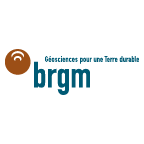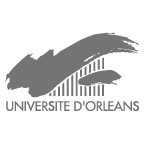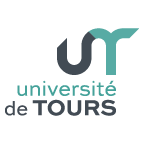- All
- [Open Science Policies]
- Auvergne-Rhône-Alpes
- Bourgogne-Franche-Comté
- Brittany
- Centre-Val de Loire
- Corsica
- DROM-COM
- Grand Est
- Hauts-de-France
- Île-de-France
- Normandy
- Nouvelle-Aquitaine
- Occitania
- Pays de la Loire
- Provence-Alpes-Côte D'Azur

BRGM
Under partnerships with numerous public and private stakeholders, it focuses on scientific research, providing scientifically-validated information to support public policy development and international cooperation.
- understanding geological phenomena and related risks,
- developing new techniques and methodologies,
- producing and distributing data for surface, subsurface and resource management,
- providing the tools required to manage the surface, subsurface and resources, prevent risks and pollution, and manage policies in response to climate change.
HAL portal
Open Science Policy

University of Orléans
The University of Orléans is characterised by its multi-disciplinarity.
The university has 3 faculties, 1 engineering university school (Polytech), 4 University Institutes of Technology (IUT), 1 Higher Schools for Professors and Educators (INSPE), 1 Observatory of the Sciences of the Universe (OSUC), 1 University school of physiotherapy (EUK).
Over 19,000 students, including over 2,000 foreign students, attend one of the university’s sites.
Every year its international focus gets stronger. Its capacity for innovation is reflected in the dynamism of the research it leads and in the technology transfers to regional, national and international companies.
The wide range of study programmes offered by the University, which includes many vocational courses, is developed with a strong connection with Research. Thanks to schemes to receive and help students and adults alike with their vocational integration, the University of Orléans is a key actor in territorial development.
HAL portal
Open Science Policy

University of Tours
Multidisciplinary (Arts & Humanities, Law, Economics & Social Sciences, Literature & Languages, Medicine, Sciences & Technology, 2 Institutes of Technology (IUT), 1 Centre for Advanced Renaissance Studies, 1 Graduate School of Engineering), the University is located in the heart of Tours but also in Blois.
With over 36 research laboratories, it is the leading public research institution in the Centre Val de Loire region.
It is distinguished by the richness of its culture, with a theatre with nearly 600 seats and a student cultural passport giving access to more than 65 regional cultural activities and events at special rates!
HAL portal
Open Science Policy